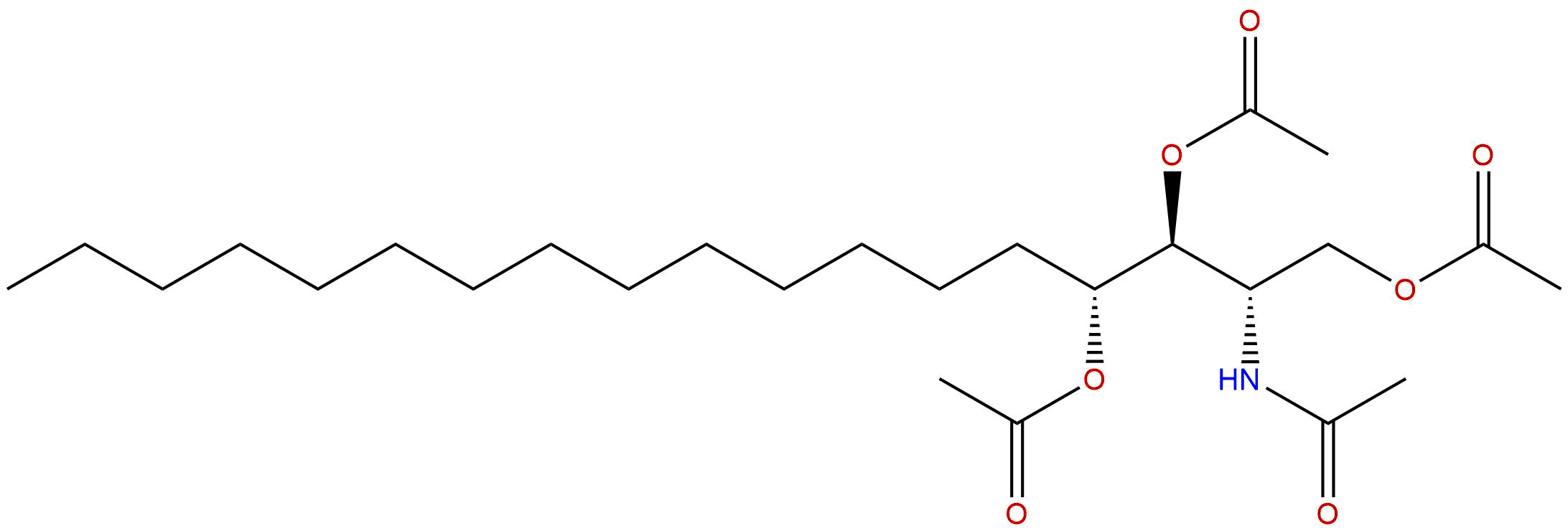
TetraacetylphytosphingosineCAS No.:13018-48-9
|
||||||||||
 |
|
|
||||||||
|
|
||||||||||

| Catalogue No.: | BP2294 |
| Formula: | C26H47NO7 |
| Mol Weight: | 485.662 |
Product name: Tetraacetylphytosphingosine
Synonym name: Tetraacetylphytospingosine;Phytosphingosine tetraacetate; Tetraacetyl-4-hydroxysphinganine
Catalogue No.: BP2294
Cas No.: 13018-48-9
Formula: C26H47NO7
Mol Weight: 485.662
Botanical Source:
Type of Compound: Alkaloids
Purity: 95%~99%
Analysis Method: HPLC-DAD or/and HPLC-ELSD
Identification Method: Mass, NMR
Packing: Brown vial or HDPE plastic bottle
Storage: Store in a well closed container, protected from air and light. Put into refrigerate or freeze for long term storage.
Whenever possible, you should prepare and use solutions on the same day. However, if you need to make up stock solutions in advance, we recommend that you store the solution as aliquots in tightly sealed vials at -20℃. Generally, these will be useable for up to two weeks.
The product could be supplied from milligrams to grams
Inquire for bulk scale.
Tetraacetylphytosphingosine is a fatty acid that belongs to the group of polyunsaturated fatty acids. It has been shown to have anti-cancer activity in skin cells and can be used for the treatment of acne. Tetraacetylphytosphingosine is not active in the presence of amines, but it is activated by an enzyme in wheat germ called tyrosinase. This compound inhibits tyrosinase activity, which leads to reduced production of melanin. Tetraacetylphytosphingosine also reduces skin inflammation and can be used as a moisturizer. It also has an inhibitory effect on the growth of some bacteria, such as Mycobacterium tuberculosis and Mycobacterium avium complex, through its ability to bind with lipids on their cell surface.
HNMR of Tetraacetylphytosphingosine

HPLC of Tetraacetylphytosphingosine
